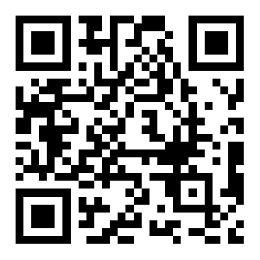The American and Oceanian area is always one of the priority areas for China's international exchanges and cooperation in education sector. Since the founding of the People's Republic of China, especially after China's adoption of the reform and open-up policies, friendly ties between China and most countries in the American and Oceanian area have been strengthened steadily, and the scale of educational exchange and cooperation has been widening day by day.
Bilateral Government Education Agreements:
Currently, the Chinese Ministry of Education (MOE) has signed exchange and cooperation agreements or memorandums of understanding in the field of education with governments of the U.S.A., Australia, New Zealand and the provinces of Quebec, British Columbia, Alberta of Canada; established regular Join Working Group Consultation Mechanism for educational exchanges at ministerial-level with New Zealand and Australia. In October 2003,the Arrangement on Higher Education Qualifications Recognition between the Government of the P. R. China and the Government of Australia and the Arrangement on Mutual Recognition of Academic Degrees in Higher Education between the Ministry of Education of the P. R. China and the Ministry of Education of New Zealand were signed. The MOE has also signed educational exchange agreements with the Ministries of Education of Fiji and Republic of the Marshal Island. In Latin America, the Chinese Government has signed cultural and/or educational exchange agreements with 15 countries. In accordance with these agreements or memorandums, China has been conducting extensive exchanges with these countries in forms of exchange of educational delegations, international students, scholarly visits and educational resources; establishing institutional links, teaching each other's languages, cooperatively running schools and joint researches.
Government Cooperative Projects:
Government cooperative projects administered and coordinated by DAOA include:
1.The Australia-China (Chongqing) Vocational Education and Training Project (ACCVETP);
2.The China-Canadian Strengthening Capacity in Basic Education in Western China Program (SCBEWC);
3.The China-U.S. Fulbright Program;
4.The U.S.-China Friendship Volunteers program;
5.The China-U.S. E-Language Learning System;
6.The China-Canada Scholar Exchange Program (CCSEP);
7.The Australia Asia Award; and
8.The China-New Zealand NZAID Scholarship.
Institutional Exchanges
Under the guidance of the government agreement framework, institutions of higher learning in China have been conducting a variety of exchanges and cooperation with their counterparts in the American and Oceanian area, and the contents of cooperation have evolved from general academic exchange activities in the past to concrete exchanges such as cooperatively running schools. The American and Oceanian area is endowed with a large number of first-class education resources. Amongst the 137 cooperatively-run programs that confer foreign degrees approved by the Office of Academic Degrees Committee of the State Council, 89 involve foreign partners from the American and Oceanian area, accounting for 65% of the total.
Cooperation with Multinational Companies
Through the active guidance, organization and coordination of the MOE, internationally renowned multinationals such as IBM, SUN, Intel, CISCO, Motorola, Lucent, Texas Instrument, in the American and Oceanian area have been supporting the teaching and research in many Chinese schools and universities through donation of money, equipments, software and textbooks. By the end of 2003, donation made by these companies reached 2.6 billion RMB Yuan.
Exchange of Students
Countries in the American and Oceanian area such as the U.S., Canada, Australia and New Zealand are the major destinations for Chinese citizens to study abroad. At present, according to incomplete statistics, the numbers of Chinese students studying in those countries, regardless of the nature and form of their study, are as follows: over 200,000 in the U.S., some 35,000 in Canada, around 35,000 in Australia, and nearly 40,000 in New Zealand. The majority of these Chinese students are on their own expenses. In recent years, the number of foreign students from this area coming to study in China has seen extensive growth.



